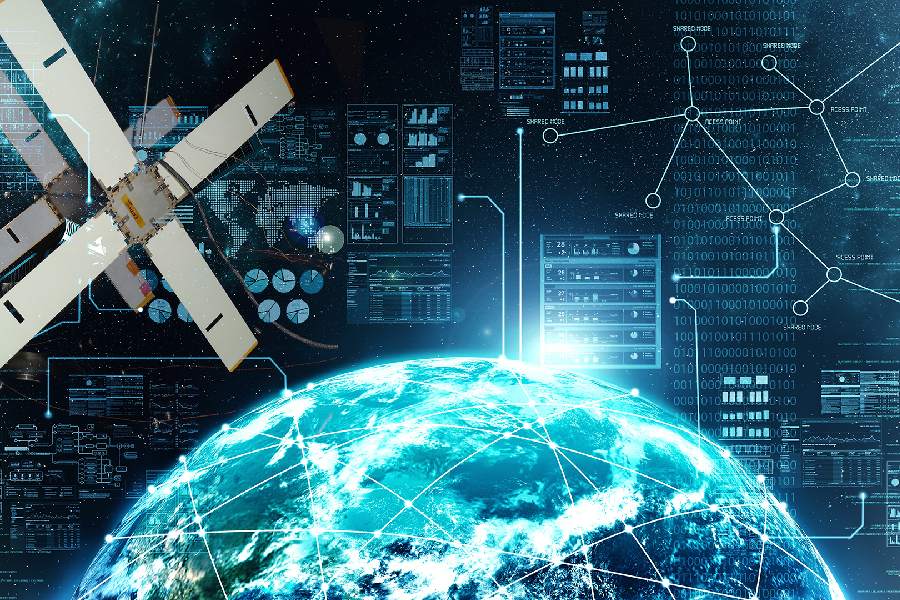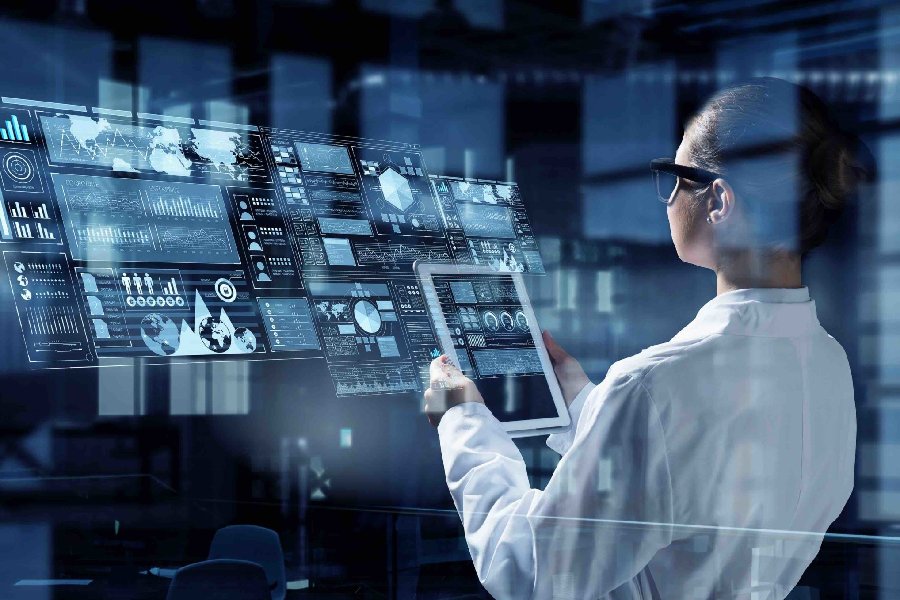Hearing often about the International Space Station orbiting could make you think space exploration has become almost routine. Yet, fulfilling humanity’s astronomical aspirations relies on technologies pushing the boundaries of engineering, computing, robotics, etc. But what are the benefits of space technology?
In this article, we will uncover how innovations driven by space research have upgraded our everyday lives. By diving into examples, we will explore the benefits and the importance of space technology across various fields.

What Are Some Benefits of Space Technology?
Space technology brings myriad benefits, influencing various aspects of life on Earth. It enhances communication through satellite technology, enables accurate weather forecasting, and facilitates navigation systems.
Additionally, space technology contributes to scientific discoveries and advancements, aids in natural disaster monitoring, and supports global collaboration. It also fuels economic growth through the space industry, creating jobs and fostering innovation.
Various Applications of Space Technology
Communication and navigation
Space-based communication satellites have revolutionized global connectivity, enabling real-time communication on a global scale. Networks powered by these satellites extend their coverage to remote areas where ground infrastructure is lacking. This means satellite phones and the internet are indispensable tools, ensuring vital communication capabilities from anywhere.
In addition to communication, the GPS satellite constellation provides precise positioning, navigation, and timing services worldwide. This facilitates location-based services on smartphones and vehicles and contributes significantly to enhancing transportation safety and efficiency.
Weather forecasting
Weather satellites provide atmospheric data to feed into forecast models. This significantly improves the accuracy and reliability of short and long-term weather predictions.
Satellite monitoring enables us to track storms and other extreme weather events. This allows for earlier warnings to mitigate loss of life and damage. It improves disaster preparedness and response coordination.
In addition, satellites gather long-term climatological data from across the globe. This facilitates monitoring climate change indicators and analyzing potential impacts from shifting weather patterns triggered by a warming world.
Astronomy and space exploration
Space telescopes like Hubble have offered insights into early galaxy formation after the Big Bang. Planetary probes have revealed key details about our Solar System, planets, and moons. This expands our astronomical understanding.
Technologies used for space shuttles and stations have catalyzed developments in aerospace engineering. Also, reusable rockets are making space travel more affordable and frequent, which may enable future interplanetary human exploration.
Earth observations
Satellites collect varied data on forests, oceans, greenhouse gasses, polar ice caps and more. This assists climate change research and environmental protection efforts.
Earth observation data aids agriculture by analyzing crop health and soil conditions. It also facilitates water resource and mineral deposit mapping for better resource management.
Furthermore, hyperspectral satellites identify the unique light signatures from different minerals. It enables efficient exploration to locate underground resources and expand mining operations. Tracking environmental impacts also relies on space-based monitoring for responsible development, especially in remote regions.

Security and defense
A network of reconnaissance satellites provides real-time imaging for defense and intelligence agencies. This enables verification of global arms agreements and troop movements to aid security operations.
Additionally, Earth observation satellites help monitor country borders and restricted zones. Automated algorithms can detect illegal activities for appropriate response coordination, improving national security.
Data storage and processing
Launching data center modules into space allows the building of distributed cloud networks in space. This environment offers advantages for data processing power, storage capacity and security.
Moreover, the zero-gravity environment allows efficient heat dissipation for electronic systems. This can support high-density computing clusters, graphics processing units, and memory storage banks. The vacuum also prolongs hardware lifespans.
Impact on Daily Lives
Improved quality of life
Satellite communication networks have connected remote regions and enabled access to information, education and services. This uplifts economies and living standards.
Also, GPS and satellite imaging guide advanced farming techniques for higher crop yields. It contributes to global food security and nutrition.
Solar panels for sustainable energy
Research and development efforts originally focused on photovoltaics for spacecraft have found valuable applications in solar panels on Earth. These solar panels are pivotal in generating clean power, offering a sustainable solution to address pressing environmental concerns.
The conditions of the space environment provide an unparalleled opportunity to test the performance and durability of solar cells over extended periods, often spanning decades. This extended testing period not only ensures the reliability of solar technology in space but also paves the way for continuous efficiency improvements that directly benefit commercial applications on Earth.
Health care advances
Innovations like invisible braces and LASIK eye surgery stemmed from heat-resistant materials and computing research done for space programs.
Furthermore, satellite communication links are crucial in enhancing global healthcare accessibility by facilitating telemedicine services, particularly in rural areas. Precision satellite navigation is also harnessed in robotic surgeries to ensure utmost accuracy.
Transport efficiency improvements
Satellite communication is the foundation for air traffic control systems, ensuring air transport’s safer and more efficient routing. In the realm of autonomous vehicles, satellite-based navigation plays a pivotal role, providing precise positioning, distance calculations, and mapping services crucial for their operations.

Conclusion
Technology has contributed immensely to the advancement of humanity. So, there are many benefits of space technology. From enabling global communications to aiding climate change research and disaster management, satellites have truly revolutionized life on Earth.
Robust space tech has also uplifted the overall quality of life across the world – whether through medical breakthroughs, transport improvements or sustainable energy. It fuels space exploration and expands our understanding of the universe.
Cross-pollination between the space industry and terrestrial applications will continue exponentially widening these benefits. This technology has impacted outer space exploration and daily life on Earth. These impacts will be felt now and for generations to come.
